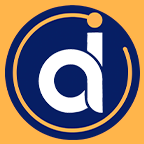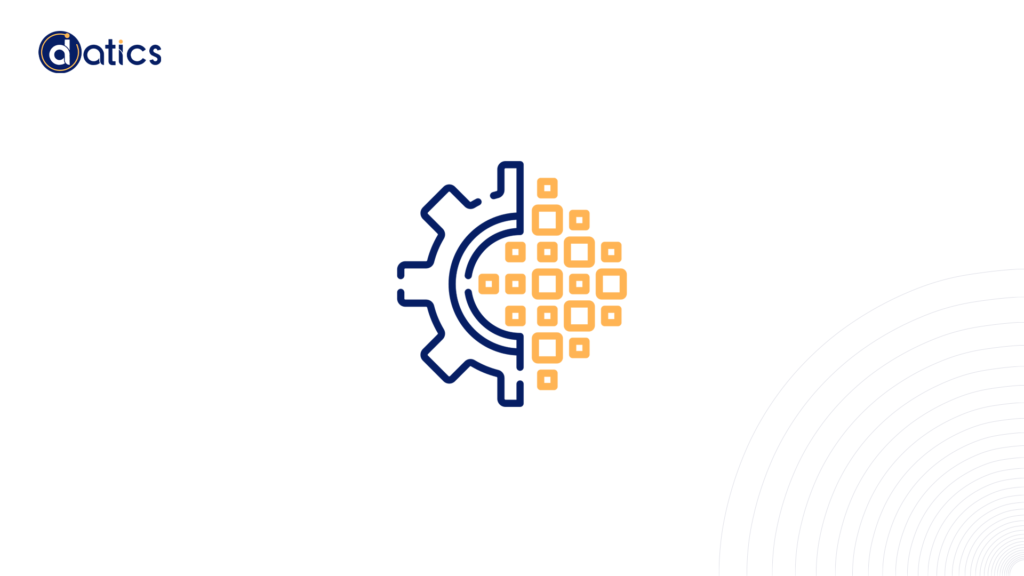Embracing the Journey: Starting Your Freelance Software Developer Career
Software developer freelance is a path filled with flexibility and autonomy, yet it also comes with its own set of challenges. If you are eager to dive into this world but need a quick overview, here it is:
- Flexibility: Work on your own schedule.
- Autonomy: Choose the projects you love.
- Challenges: Manage your business and find clients continuously.
Freelance software development provides the freedom to work when and how you want. You can select the projects that excite you the most and avoid the monotonous 9-to-5 grind. However, this independence requires strong self-discipline and robust business management skills.
I’m Umair Majeed, the CEO of Datics AI. With a rich background in software developer freelance work, I have transformed visions into reality for numerous global clients. This article will guide you through every step of starting your freelance journey, ensuring you have a roadmap to success.
Software developer freelance terms simplified:
– application developer near me
– developer hiring
– hire remote developers
Understanding Freelance Software Development
Freelance software development is an exciting career path that offers a unique blend of flexibility, independence, and professional growth. Let’s break down what makes this career choice so appealing.
Career Path
Choosing to become a freelance software developer means you’re stepping into a world where your career trajectory is largely in your hands. Unlike traditional employment, where promotions and pay raises are often based on tenure, freelancing allows you to advance based on your skills and the quality of your work.
For instance, working on high-profile projects or with well-known clients can significantly boost your portfolio and open doors to more lucrative opportunities. Freelancers often start with smaller projects and gradually take on more complex and higher-paying jobs as they gain experience and build a reputation.
Time Flexibility
One of the most attractive aspects of freelancing is the flexibility it offers. As a freelance software developer, you can set your own schedule. This means you can work during your most productive hours, whether that’s early in the morning or late at night.
This flexibility also allows you to balance work with personal commitments more effectively. For example, you can take time off for family events or vacations without needing to seek approval from a boss.
Independence
Freelance software development gives you a high level of autonomy. You have the freedom to choose the projects you want to work on. This can be incredibly fulfilling, as you can focus on areas that interest you the most, whether that’s developing mobile apps, working on AI projects, or creating websites.
However, this independence also means you are responsible for every aspect of your business. You’ll need to handle client communication, project management, and even your own marketing.
Professional Growth
Freelancing offers numerous opportunities for professional growth. Working with a variety of clients exposes you to different industries and technologies, which can broaden your skill set. Additionally, many freelancers find that they must constantly learn and adapt to stay competitive, which can lead to rapid skill development.
Contributing to open-source projects is another excellent way to grow professionally. It not only improves your skills but also helps you build a reputation in the developer community.
Real-World Example
Consider a freelance software developer who started their career focusing on small web development projects. Over time, they expanded their skill set to include mobile app development and machine learning. This diversification allowed them to take on more complex projects and significantly increase their income. This story is a testament to the professional growth that freelancing can offer.
By understanding these key aspects, you can better prepare yourself for a successful career as a freelance software developer. Next, we’ll dive into the essential skills you’ll need to thrive in this role.
Essential Skills for Freelance Software Developers
To thrive as a freelance software developer, you need a mix of technical prowess, communication skills, project management abilities, and problem-solving capabilities. Let’s break down these essential skills.
Technical Skills
Being a successful freelance software developer starts with strong technical skills.
Programming Languages: Mastery of languages like JavaScript, Python, or Java is crucial, depending on your specialization. For web development, proficiency in JavaScript, React, and Node.js is essential.
Frameworks and Tools: Familiarize yourself with popular frameworks and tools relevant to your field. For instance, if you’re into mobile app development, knowing React Native or Flutter can be beneficial.
Version Control: Proficiency in version control systems like Git is a must. It allows you to track changes and collaborate with clients or other developers seamlessly.
Continuous Learning: The tech world evolves quickly. Stay updated with the latest trends and technologies. For example, investing time in learning about blockchain or AI can set you apart from the competition.
Communication Skills
Effective communication is vital in freelancing, especially when you’re working remotely.
Written Communication: Most interactions with clients will be through email or chat. Clear and concise writing helps avoid misunderstandings.
Verbal Communication: Video calls are common for meetings and check-ins. Being articulate and clear during these calls builds trust with clients.
Documentation: Good documentation practices ensure that your code is understandable and maintainable. This is especially important if other developers will work on your code in the future.
Project Management
Managing your projects efficiently can make or break your freelancing career.
Time Management: Balancing multiple projects requires excellent time management. Tools like Trello or Asana can help keep track of tasks and deadlines.
Client Management: Regular updates and progress reports keep clients informed and involved. This reduces the risk of scope creep and ensures that the project stays on track.
Organization: Keeping your work organized helps you stay productive. Use tools like Slack for communication and Jira for tracking project progress.
Problem-Solving
Freelance software developers often face unique challenges that require creative solutions.
Analytical Skills: Break down complex problems into manageable parts. This systematic approach helps in finding effective solutions.
Creativity: Sometimes, the best solutions aren’t the most obvious ones. Bringing creative thinking to your problem-solving approach can set you apart.
Adaptability: Be prepared to pivot and adapt to new challenges. Whether it’s a sudden change in project requirements or a new technology, staying flexible is key.
Real-World Example
Consider Jane, a freelance software developer specializing in web applications. She faced a project where the client needed a complex feature that wasn’t initially planned. By breaking down the problem and creatively using existing libraries, she delivered a solution that exceeded the client’s expectations. Jane’s adaptability and problem-solving skills turned a potential issue into a success story.
By honing these skills, you’ll be well-prepared to tackle the challenges of freelancing and build a successful career. Next, we’ll discuss how to set up your freelance business.
Setting Up Your Freelance Business
Setting up your freelance software developer business involves a few critical steps, from business registration to finding clients. Here’s how you can get started.
Business Registration
First things first, you need to legally set up your business. This involves:
Choosing a Business Structure: Decide whether you’ll operate as a sole proprietor, LLC, or corporation. Each has different tax implications and legal protections.
Registering Your Business: Depending on your location, you might need to register your business name and get a business license. Check with your local government for specific requirements.
Getting an EIN: If you’re in the U.S., an Employer Identification Number (EIN) from the IRS is essential for tax purposes.
Portfolio Creation
A strong portfolio is your best marketing tool. It showcases your skills and experience to potential clients.
Showcase Your Best Work: Include a variety of projects that highlight your skills. Use platforms like GitHub to host your code and LinkedIn to display your professional achievements.
Detail Each Project: For each project in your portfolio, include a brief description, the technologies used, and the outcomes. Visuals like screenshots or demo videos can be very effective.
Personal Projects and Open Source: If you’re just starting, personal projects or contributions to open-source projects can also be included. They demonstrate your initiative and skills.
Setting Rates
Determining how much to charge can be tricky but crucial for your success.
Research Market Rates: Look at what other freelancers with similar skills and experience are charging. Platforms like Upwork or Freelancer can give you an idea of the going rates.
Consider Your Costs: Factor in your living expenses, taxes, and business expenses. This will help you set a rate that covers your needs and is competitive.
Hourly vs. Fixed Rates: Decide whether you’ll charge by the hour or offer fixed-rate packages. Hourly rates are flexible, while fixed rates can be appealing to clients who want cost certainty.
Finding Clients
Finding clients is a continuous process that requires a mix of strategies.
Freelance Platforms: Websites like Upwork are great for finding freelance jobs. You can post your profile and bid on projects that match your skills.
Networking: Attend local meetups, join online forums, and participate in hackathons. Websites like Meetup and Eventbrite list events where you can meet other developers and potential clients.
Cold Outreach: Don’t be afraid to reach out to potential clients directly. A well-crafted email or LinkedIn message can open doors to new opportunities.
Referrals and Testimonials: Happy clients are your best marketing tool. Ask for testimonials and referrals to build your reputation and attract new clients.
By following these steps, you’ll be well on your way to establishing a successful software developer freelance business. Next, we’ll discuss the platforms where you can find freelance software development jobs.
Platforms to Find Freelance Software Development Jobs
Finding freelance software development jobs can be challenging, but several platforms can help you connect with clients and secure projects. Here are some of the best platforms to get started.
Upwork
Upwork is one of the largest freelancing marketplaces globally. It offers a variety of projects, from short-term tasks to long-term contracts.
- Wide Range of Jobs: Upwork has jobs in many categories, including web development, mobile development, and software engineering.
- Client Reviews: You can build your reputation through client reviews and ratings, which can help you secure more jobs.
- Payment Protection: Upwork offers payment protection for hourly and fixed-price contracts, ensuring you get paid for your work.
Fiverr
Fiverr is another popular platform, known for its “gig” system where freelancers offer specific services at starting prices of $5.
- Service Listings: Create listings for various services, such as coding, debugging, or full project development.
- Flexible Pricing: While gigs start at $5, you can offer premium services for higher prices.
- Large Client Base: Fiverr is used by millions of clients, including big companies like Netflix and Facebook, giving you a broad audience.
Toptal
Toptal is a platform that connects clients with the top 3% of freelance talent in various fields, including software development.
- Rigorous Screening: Toptal has a rigorous screening process to ensure only the best freelancers are accepted.
- High-Paying Projects: Due to its exclusive nature, Toptal often offers high-paying projects.
- Global Clients: Work with clients from around the world, including Fortune 500 companies.
Freelancer
Freelancer is a versatile platform that allows you to bid on projects across various categories, including software development.
- Competitive Bidding: Bid on projects that match your skills and offer competitive rates.
- Milestone Payments: Freelancer offers milestone payments to ensure you get paid as you complete parts of the project.
- Diverse Job Categories: Find jobs in web development, mobile apps, and more.
Job Boards
Job boards are another excellent resource for finding freelance software development jobs. Some popular options include:
- FlexJobs: Offers a mix of freelance and remote job listings, with a focus on flexible working arrangements.
- Indeed: Search for freelance software development jobs and filter by remote work options.
- LinkedIn: Use LinkedIn’s job search feature to find freelance opportunities and connect with potential clients.
By leveraging these platforms, you can find a wide range of software developer freelance jobs that match your skills and preferences. Next, we’ll discuss how to create effective freelance developer agreements to protect both you and your clients.
Creating Effective Freelance Developer Agreements
Creating a solid freelance developer agreement is crucial for protecting both you and your clients. This section will cover key elements such as work agreements, client protection, and code expectations.
Work Agreements
A well-defined work agreement sets the stage for a successful project. It should include:
- Project Scope: Clearly describe the tasks, deliverables, and timelines. For example, if you’re building a web app, specify the functionalities, technologies, and expected outcomes.
- Payment Terms: Outline how and when you will be paid. This can include milestones, hourly rates, or a fixed fee.
- Change Clause: Projects often evolve. Include a clause that addresses how changes to the scope will be managed and compensated.
A clear work agreement helps prevent misunderstandings and ensures both parties are on the same page.
Client Protection
Protecting your clients’ interests builds trust and fosters long-term relationships. Key elements to include are:
- Confidentiality: Use a Non-Disclosure Agreement (NDA) to protect sensitive information. This is essential when dealing with proprietary data or innovative ideas.
- Intellectual Property (IP) Rights: Clearly state who owns the code and any developed IP. Typically, the client owns the final product, but you may retain rights to reusable components.
- Liability: Limit your liability for any issues arising from the use of the software. This can include bugs, security vulnerabilities, or downtime.
Example: A freelance developer working on a classroom analysis tool must ensure that all student data remains confidential and that the client owns the final software.
Code Expectations
Setting clear expectations for the quality and functionality of your code is vital. Here’s what to consider:
- Coding Standards: Agree on coding standards and best practices. This ensures consistency and maintainability. For instance, follow industry standards like those from the Clean Code book.
- Testing and Compatibility: Define the types of testing you will perform (unit tests, integration tests) and the environments in which the software should work (browsers, operating systems).
- Documentation: Include requirements for code comments, user manuals, and technical documentation. This is crucial for future maintenance and scalability.
A well-documented CRM system, for example, will help clients manage customer interactions efficiently and make future updates easier.
By following these guidelines, you can create effective freelance developer agreements that protect both you and your clients. Next, let’s explore how to manage your freelance projects efficiently.
Managing Your Freelance Projects
Managing freelance software development projects requires a blend of organization, communication, and the right tools. Let’s break it down into key areas: project management tools, time tracking, client communication, and deliverables.
Project Management Tools
Using the right project management tools can make or break your project. Here are some popular options:
- ClickUp: A versatile tool that allows you to customize views, assign tasks, and track goals. It’s great for various project methodologies and communication styles.
- Jira: Widely used in software development for task tracking, issue management, and agile project management. Its customizable workflow and integration capabilities make it a go-to choice.
- Trello: An intuitive Kanban-based tool. Create themed boards and tasks, visually track progress, and collaborate with team members.
Example: A developer working on a job board platform can use Trello to track tasks like login page development, candidate profiles, and messaging functionality.
Time Tracking
Tracking your time helps in understanding productivity and managing workloads. Here are some tools to consider:
- Toggl: Simple and effective for tracking time spent on different tasks. It helps you see where your time goes and improve efficiency.
- Clockify: A free time tracker that offers detailed reports on time spent on various projects. Useful for billing and productivity analysis.
Example: Use Toggl to track time spent on developing a CRM system’s contact management feature, ensuring you stay within budget and time constraints.
Client Communication
Effective communication with clients ensures that projects stay on track and meet expectations. Here’s how to do it right:
- Regular Updates: Provide written updates on project status, issues encountered, and upcoming tasks. Weekly updates are typical but adjust based on project needs.
- Daily Stand-Ups: Short meetings where you discuss what you did yesterday, what you plan to do today, and any blockers. Keeps everyone aligned.
- Single Point of Contact: Ensure there’s one always-available person for all communication. This eliminates conflicting signals and keeps the project on track.
Example: For a classroom analysis tool project, hold daily stand-ups to discuss progress on data collection and processing components.
Deliverables
Clearly define and manage deliverables to ensure client satisfaction. Here’s what to focus on:
- Detailed Milestones: Break the project into manageable parts with clear milestones. This helps in tracking progress and managing client expectations.
- Quality Assurance: Perform thorough testing (unit tests, integration tests) to ensure the software meets quality standards.
- Documentation: Provide comprehensive documentation, including code comments, user manuals, and technical documentation. This is crucial for future maintenance.
Example: When delivering a PWA-based CRM system, ensure all features like contact management, reporting, and communication are thoroughly tested and documented.
By using the right tools and strategies, you can manage your freelance software development projects efficiently, ensuring high productivity and seamless collaboration.
Next, let’s explore how much you can earn as a freelance software developer.
Understanding how much you can earn as a freelance software developer involves looking at average salaries, hourly rates, and various factors that affect your income.
Average Salary
The average salary for freelance software developers can vary widely. According to industry data, entry-level developers typically earn between $50,000 to $75,000 annually. More experienced developers, with over five years of experience, can expect to earn between $100,000 to $150,000 per year.
Hourly Rates
Hourly rates also fluctuate based on experience and project complexity:
- Entry-Level Developers: $25 to $50 per hour
- Experienced Developers: $50 to $150 per hour
These rates can be influenced by the type of project, the client’s budget, and the developer’s negotiation skills.
Factors Affecting Income
Several factors can impact how much you earn:
- Experience and Skill Level: More experienced developers with specialized skills (e.g., AI, blockchain) command higher rates.
- Project Complexity: Complex projects with advanced requirements typically pay more.
- Client Location: Clients in high-cost regions (like the US and Western Europe) usually pay more than those in lower-cost regions.
- Freelance Platforms: Platforms can help you find clients but may charge a commission on your earnings.
- Market Demand: High demand for certain technologies or skills can increase your earning potential.
By understanding these factors, you can better steer your software developer freelance journey and maximize your income.
Frequently Asked Questions about Freelance Software Development
Can you freelance as a software developer?
Absolutely, you can freelance as a software developer. Freelancing offers flexibility and autonomy that traditional jobs might not. You get to choose your projects, set your own hours, and work from wherever you want. However, it also comes with challenges like finding consistent work and managing multiple clients.
Flexibility: Freelancers can work from anywhere and often set their own schedules. This is perfect if you value work-life balance or have other commitments.
Autonomy: You have control over the projects you take on, allowing you to focus on what interests you most. This can lead to more job satisfaction and professional growth.
Project Choice: Unlike traditional roles, freelancing lets you pick projects that align with your skills and interests. This can make your work more enjoyable and fulfilling.
Challenges: Freelancing isn’t without its problems. You’ll need to constantly look for new clients, manage your own finances, and handle administrative tasks. It requires not just coding skills, but also business acumen.
How much do freelance software developers make?
The earnings of a freelance software developer can vary widely based on several factors, including experience, skills, and project complexity.
Average Annual Pay: Entry-level developers typically earn between $50,000 to $75,000 per year. Experienced developers can earn between $100,000 to $150,000 annually.
Hourly Rates: These can range from $25 to $50 per hour for entry-level developers, and $50 to $150 per hour for more experienced ones. Specialized skills can command even higher rates.
Salary Calculator: Tools like salary calculators can help you estimate your earning potential based on your skills, experience, and location.
Setting Rates: When setting your rates, consider factors like your level of expertise, the complexity of the project, and the client’s budget. It’s crucial to research market rates to ensure you’re competitive.
Can you make a living as a freelance developer?
Yes, you can make a living as a freelance developer, but it requires strategic planning and consistent effort.
Setting Rates: It’s essential to set rates that reflect your skills and the value you bring. Don’t undervalue your work; doing so can lead to burnout and financial stress.
Salary Variation: Your income can vary based on the type of projects you take on and the clients you work with. High-demand skills and technologies often lead to higher-paying positions.
High-Paying Positions: Specializing in areas like AI, blockchain, or cybersecurity can significantly boost your earning potential. These fields are in high demand and offer lucrative opportunities.
By understanding these aspects, you can better steer your journey as a freelance software developer and achieve financial stability.
Conclusion
At Datics AI, we specialize in custom software development that transforms ideas into market-ready products. Our end-to-end services ensure that every stage of your project, from initial consultation to full deployment, is handled with meticulous attention to detail.
Why Choose Datics AI?
Global Clients: We have a diverse portfolio of clients from around the world. Our experience across various industries ensures we can tackle any challenge you throw our way.
Innovative Solutions: We integrate cutting-edge technologies like AI and blockchain into your projects, helping you stay ahead in your market.
High-Quality: From design to deployment, we ensure that every aspect of your software meets rigorous quality benchmarks.
Comprehensive Support: Our relationship doesn’t end with deployment. We offer continuous support and maintenance to ensure your software remains reliable and up-to-date.
By choosing Datics AI, you’re not just investing in a software solution; you’re partnering with a team committed to your success. Our custom software development services are designed to streamline your operations, improve efficiency, and provide functionalities that off-the-shelf software simply can’t offer.
Ready to transform your business with custom software? Contact us today to get started on your software development journey.






